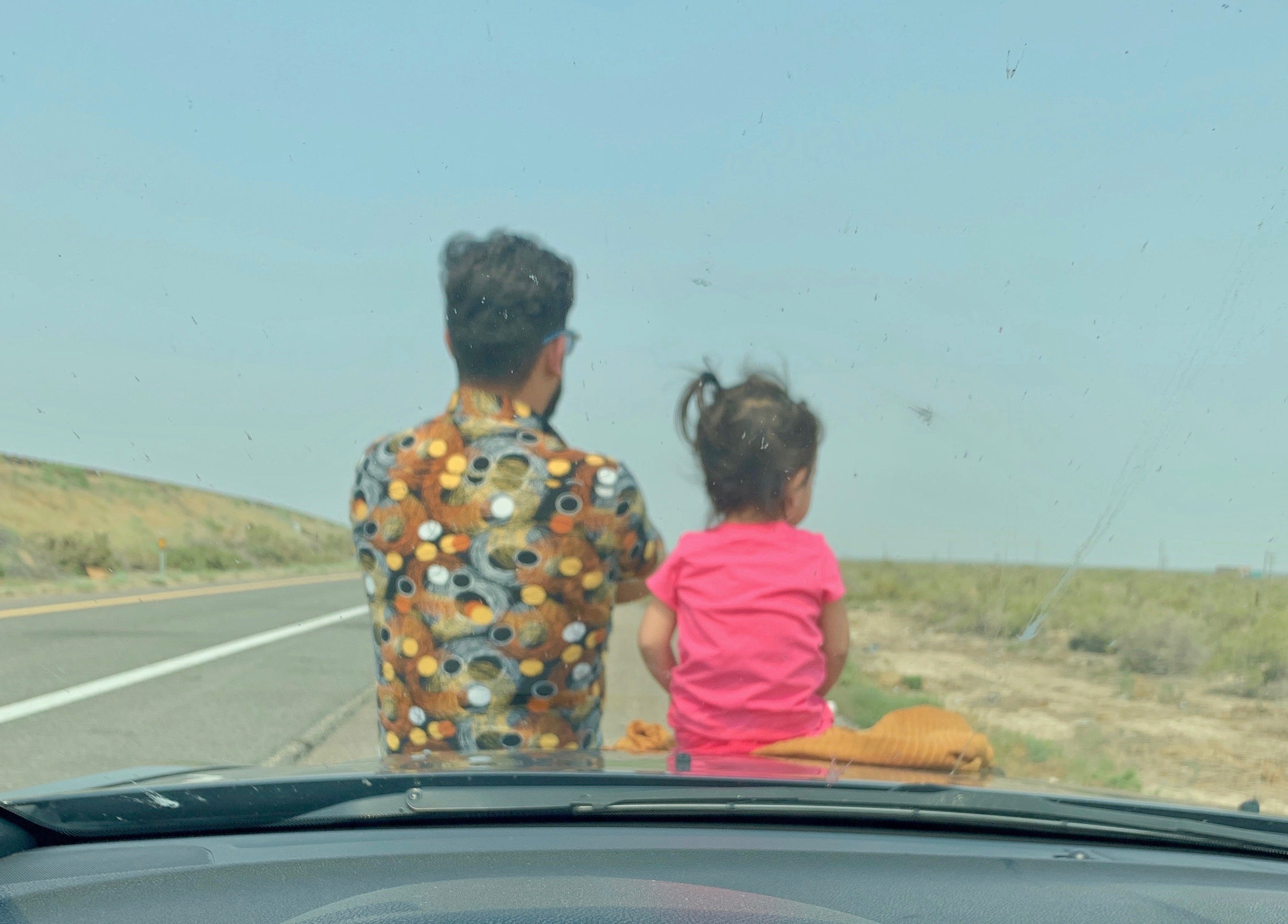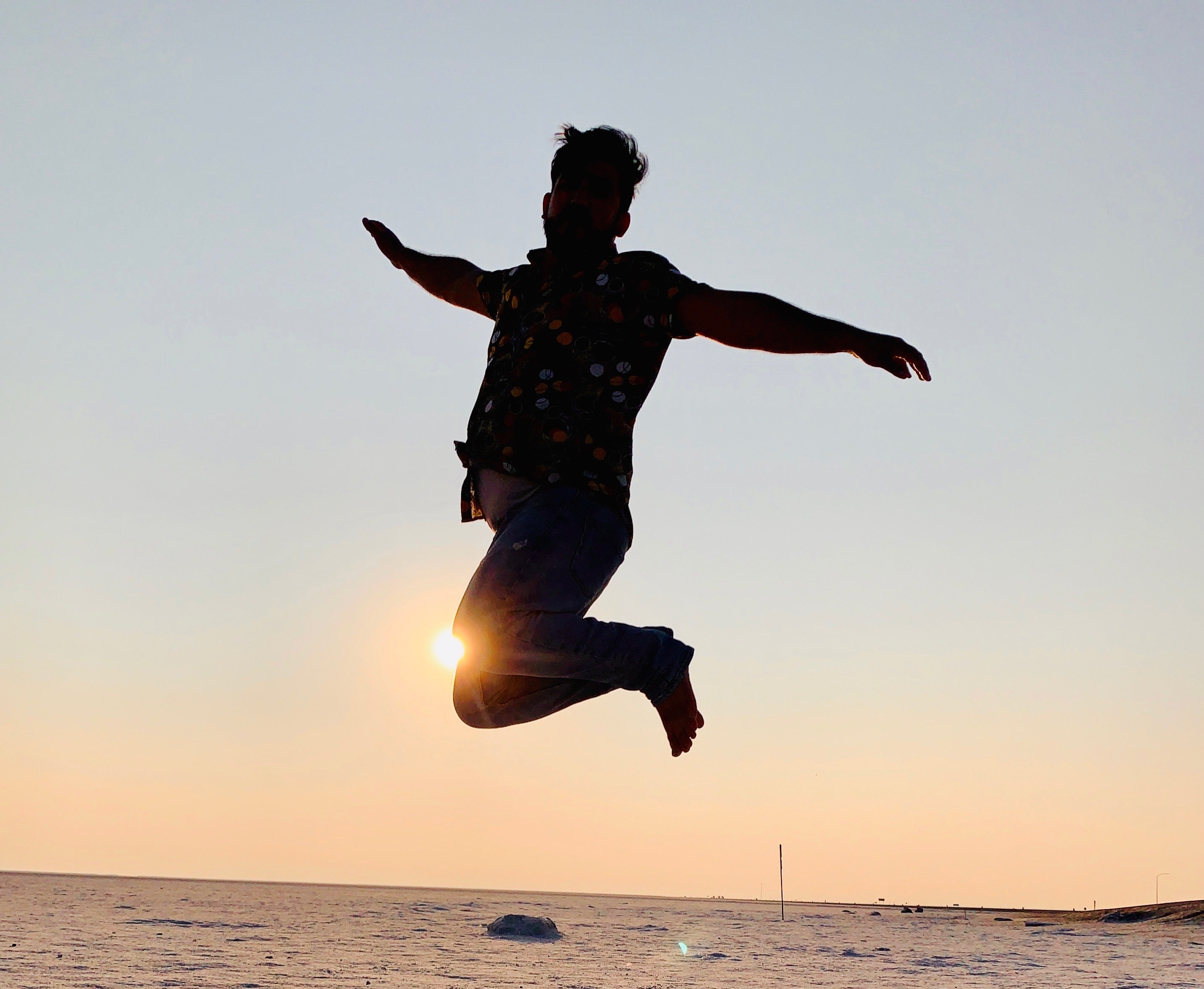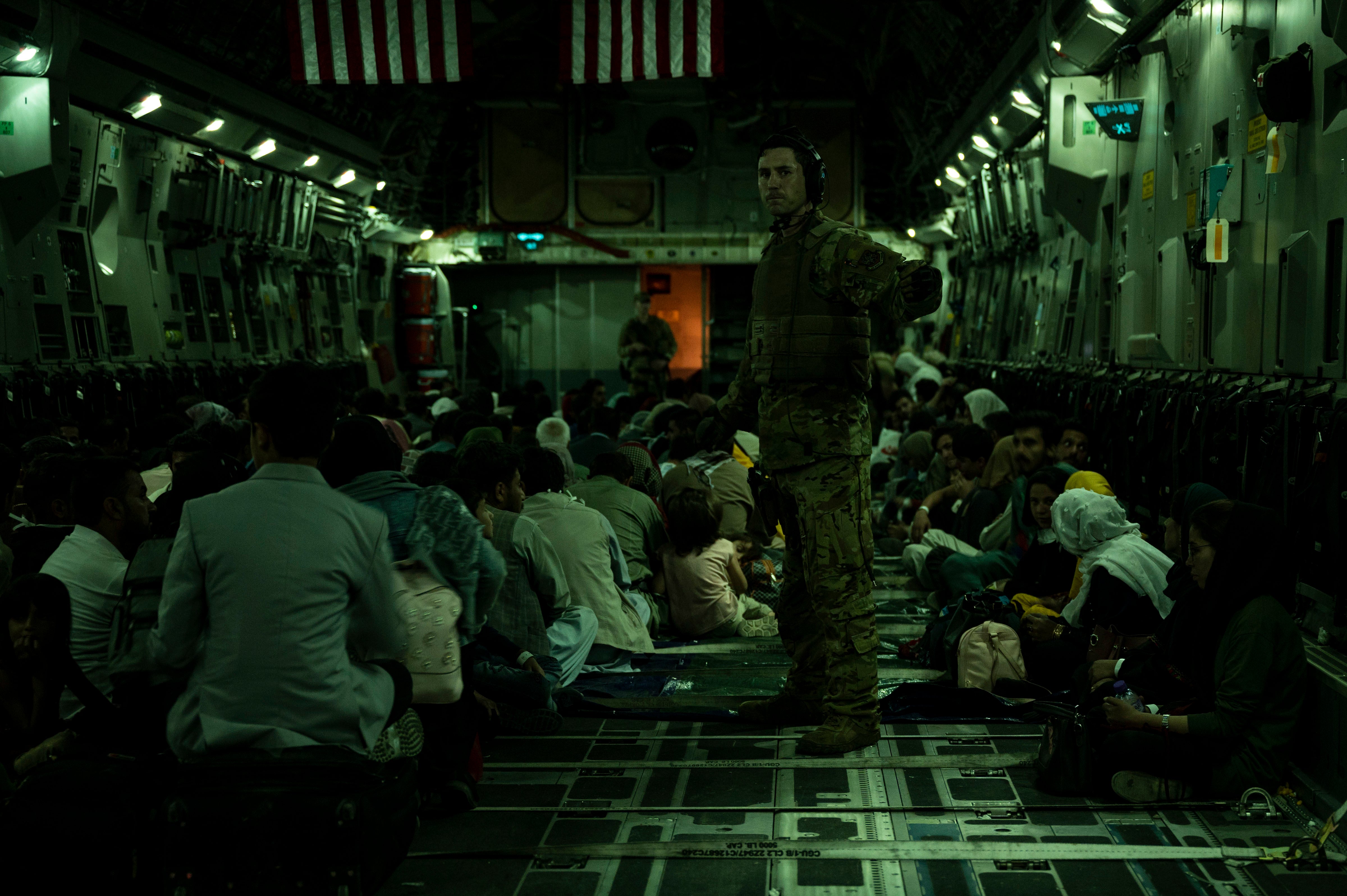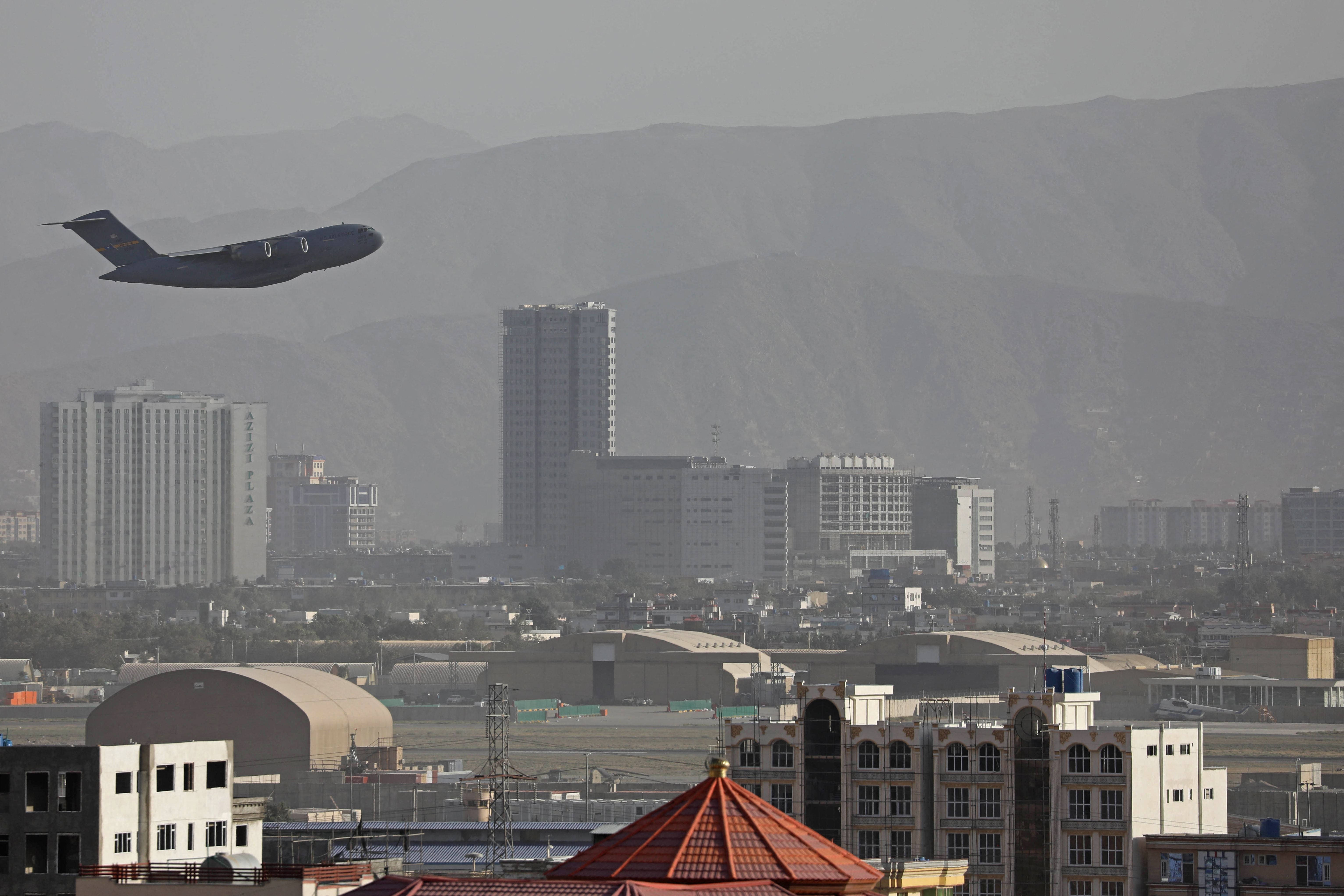One Afghan family’s astonishing escape from Kabul to a new life in America
Young father excited for future but worried about family still in Afghanistan, he tells Andrew Buncombe


Your support helps us to tell the story
From reproductive rights to climate change to Big Tech, The Independent is on the ground when the story is developing. Whether it's investigating the financials of Elon Musk's pro-Trump PAC or producing our latest documentary, 'The A Word', which shines a light on the American women fighting for reproductive rights, we know how important it is to parse out the facts from the messaging.
At such a critical moment in US history, we need reporters on the ground. Your donation allows us to keep sending journalists to speak to both sides of the story.
The Independent is trusted by Americans across the entire political spectrum. And unlike many other quality news outlets, we choose not to lock Americans out of our reporting and analysis with paywalls. We believe quality journalism should be available to everyone, paid for by those who can afford it.
Your support makes all the difference.There was one moment, and one moment only, when he felt safe.
It was not when he managed to shoulder and shove his way inside Kabul’s seething airport, successful on the second day of trying, and only after having been forced to leave his elderly father behind.
It was not when they approached the front of a second queue, overseen by American troops, but which frequently descended into chaos as soldiers fired their weapons into the air in an attempt to control the crowds. It was not even when he and his family were squeezed inside the cargo hold of a massive C-17 Globemaster military plane.
And even when they arrived in Qatar, on their way to the United States, the 29-year-old feared his wife and child might still be detained because they, unlike him, did not yet have a proper visa.
Rather, says Mustafa, it was the instant when he and his family were told by a US border official at Dulles international airport, that they could all enter the United States together – him, his wife and their young daughter. A family.

“When I arrived in DC and talked with the border security officer, I asked him if my wife can [be with me]. And he said, ‘Yes, you have your own place together’,” he tells The Independent.
“And at that time I said, ‘Yeah, thank God, I’m done. I feel better, and I feel safe. And I said, ‘Nothing is gonna happen with me.’”
The first thing they did was to rent a car at the airport, a Toyota 4Runner, and head for Mustafa’s home in California, a road-trip that would allow his wife and child to see their new nation for the first time. He hoped it would also allow them to process some of what had happened to them in the weeks before.
They made stops along the way, including a zoo in Cleveland, Ohio, that delighted his daughter, and Salt Lake City, where they paused to take photographs against the backdrop of the lake beds of crystals.
In the days since the Taliban took control of Kabul and completed its capture of Afghanistan on 15 August, the US military has evacuated at least 111,000 people from peril through Hamid Karzai international airport. According to secretary of state Antony Blinken, of those people 4,500 were American citizens, while many others were Afghans who had been working with the US or Nato forces at some point over the last 20 years and whose service thereby put them in danger.
“Our focus right now is getting our citizens, and getting our partners, Afghan partners, third-country partners who have been working in Afghanistan with us, out of the country into safety,” Blinken said this week.
All of the individuals flown from Kabul, in the largest military airlift in a generation, will carry with them a story to share of utter drama and vexed emotions, happy for their own safety but anxious about loved ones left behind and the fate of their country.
This week, the danger involved was dramatically underscored by a bomb attack at the airport, apparently carried out by Isis, and which killed up to 170 people. Among the dead were 13 American troops.
Few journeys can have been more fraught than that of Mustafa, who travelled in both directions, once to Kabul to collect his wife, Osmani, 24, and 21-month-old daughter Honeya, and then to shepherd them back to the United States.
More than once, he says, he feared they would not make it. And at Kabul airport, he says he saw older people killed in the crush.
“It was a nightmare to get into the airport,” says Mustafa, who asked that he and his family be identified only by their first names. He and other members of his family worked for international organisations and he fears for the safety of those still in Afghanistan.
His story also highlights the slow, faltering pace in processing the special immigrant visas (SIVs) created to help the thousands of Afghans and their families who risked all to help US and Nato forces during two decades of the so-called war on terror.
While he was able to travel to the US on such a visa in the spring of 2017 with the help of humanitarian group World Relief, the process to prepare documents for his wife took much longer.
As a result, after getting his, Mustafa travelled to Afghanistan half a dozen times to see his wife and family, ever watchful of the situation in the country, and as Donald Trump – and then Joe Biden – vowed to withdraw US troops and leave Afghans to fend for themselves.

Speaking to The Independent from Nevada, with his home in the San Francisco Bay Area just one day’s drive away, Mustafa says this summer he watched the situation deteriorate, as the US withdrew its last 2,400 troops, and the Taliban further flexed its grip.
In July, he decided he had no alternative but to go to Kabul to try and save as many of his family as possible – his parents, his brother and of course, his wife and child.
“People were saying to me not to go, but I had to go,” he says. “I could not leave my wife and child there.”
He flew to Kabul on 11 July and stayed at his family’s home, a time marked by mounting concerns about the Taliban.
“I was very worried but I tried not to be paranoid and to stay calm,” he says, saying he also helped his parents get passports, hopeful that if they could not make it to the US, they could at least find a haven in another country, Tajikistan or Kazakhstan, or some such.
A day or so after the Taliban seized Kabul, Mustafa and his family tried to make it to the airport but were unable to fight their way through. The next morning, he rose at 6am and tried again.
Once again he was confronted by huge crowds, a crush of people; a throng his father, who he says spent 12 years working at the British embassy, could not pass.
“Finally, I said to my father, ‘Sorry it’s not possible to get inside. But I will try and find a way in and help from the inside’,” he says. “At the airport there were kids, and there were women, [dying] around me because it was so hard for them to breathe.”
Having passed the outer cordon, Mustafa says they slept on the floor, with just a few sips of water and a bite of food. The entirety of the next day was spent in a second line, waiting to get processed.

Finally at 2.30am the next day they boarded the military flight to Qatar; a crush of people on the floor of the plane, but happy to be moving.
In Qatar, there were a couple more difficult days before they were put on a 14-hour flight to DC. “It was very comfortable. There was lots of food,” says Mustafa, who has a degree in economics, and who worked as an Uber driver during the pandemic.
Mustafa says he is glad the US evacuated him and his immediate family, though he says many Afghans risked their lives to help the US and deserve to be helped. But he is critical of the endgame, the chaos and peril at the airport, of soldiers firing into the air.
“The lack of a good plan for evacuation was causing more problems,” he says. “I don’t know why they had no plan.”
Now in the US, Mustafa is thinking about his family’s new start here, with a chance for his wife, Osmani, to attend college, and his daughter enrol in a kindergarten.
Speaking through Mustafa, Osmani says she is worried for her family in Afghanistan and is struck by the landscape of America. “I’ve seen no military checkpoints and I like that the Taliban is not here.”
Mustafa says they are trying to enjoy these moments together, heading west to build a new life. But they cannot forget their families in Kabul, and the peril presented by the Taliban.
That danger was reinforced in the most shuddering way, when an attack on Kabul airport, the very place from which they escaped, had been targeted by extremists. The death toll has reached 170, with 200 wounded, and the numbers are likely to increase further.
“After a long time, my wife is with me and my child is with me. But I’m very worried about my family and what will happen to them in Kabul,” he says.
Indeed, like many, in addition to his concerns about Isis, Mustafa does not believe the Taliban has radically shifted in its ideology, or the threat it represents to a more tolerant way of life in Afghanistan.
“So far they’re they’re trying to act like they’re [more] tolerant than they used to be, but I believe they still have the same mentality,” he says.
“Pretty soon they will revert to how they were, and they will be more powerful than ever before.”
Join our commenting forum
Join thought-provoking conversations, follow other Independent readers and see their replies
Comments